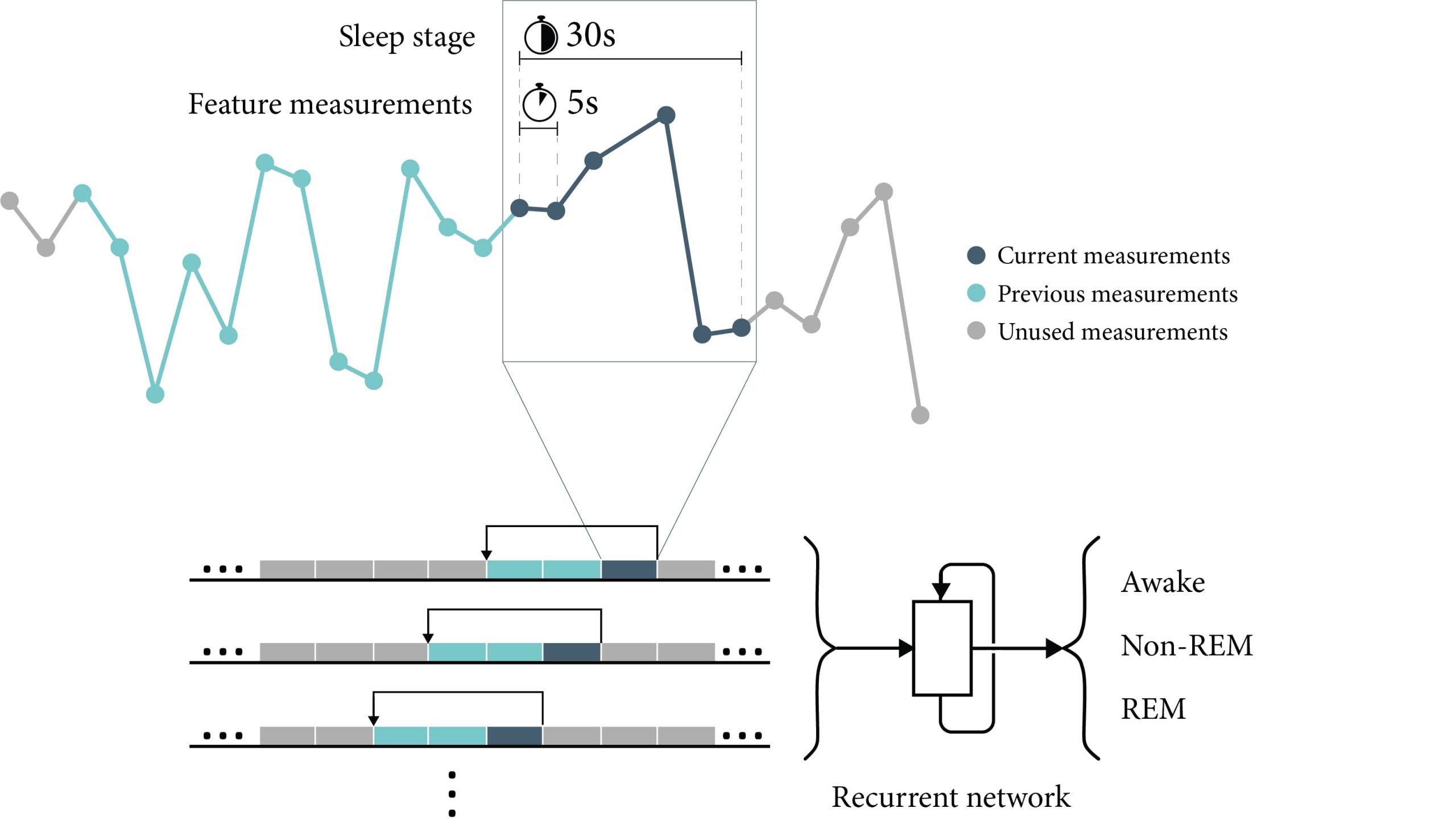
Jian Hu, Haochang Shou
Under revision
The use of wearable sensor devices on daily basis to track real-time movements during wake and sleep has provided opportunities for automatic sleep quantification using such data. Existing algorithms for classifying sleep stages often require large training data and multiple input signals including heart rate and respiratory data. We aimed to examine the capability of classifying sleep stages using sensible features directly from accelerometers only with the aid of advanced recurrent neural networks. In this study, we analyzed a publicly available dataset with accelerometry data in 5s epoch length and polysomnography assessments. We developed long short-term memory (LSTM) models that take the 3-axis accelerations, angles and temperatures from concurrent and historic observation windows to predict wake, REM and non-REM sleep.
